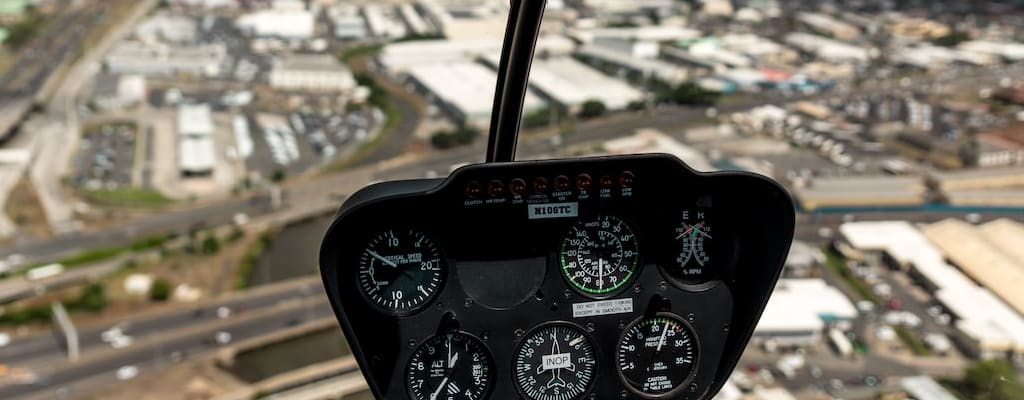fly blind: Idiom Meaning and Origin
What does ‘fly blind’ mean?
The idiom "fly blind" means to operate without clear information or guidance. It conveys the idea of taking action without being fully aware of the situation or its potential consequences.

Idiom Explorer
The idiom "take a flyer" means to take a risk or gamble without considering the potential consequences or likelihood of success.
The idiom "in the dark" means being unaware or uninformed about something, lacking knowledge or understanding. It is often used to describe a situation where someone is kept ignorant or intentionally left out of important information or events.
The idiom "hang out to dry" means to leave someone in a difficult or vulnerable situation without support or assistance.
The meaning of the idiom *gun jumping* is to act prematurely or make assumptions without having all the necessary information. It is often used in legal and business contexts when someone takes actions or makes decisions without properly considering the consequences.
The idiom "go with the wind" means to be unpredictable or easily swayed by circumstances, lacking firmness or commitment.
The idiom "go with one's gut" means to rely on one's intuition or instinct when making a decision, rather than using logical reasoning or analysis.
The idiom "go out on a limb" means to take a risk or to put oneself in a vulnerable position by expressing an opinion or taking an action that is not widely supported or accepted.
The idiom "go off half-cocked" means to act without proper preparation or forethought, often resulting in a blunder or failure.
The idiom "gone with the wind" means to disappear or be completely lost, often without any trace or indication of where or how it happened.
Sailing without Sight
"take a flyer" is an idiom that is related to the concept of "fly blind." The phrase "take a flyer" means to take a risk or chance on something, often without having all the necessary information or certainty about the outcome. It can be seen as a metaphorical extension of "fly blind," highlighting the element of uncertainty and risk involved when making a decision without complete knowledge or guidance.
"The blind leading the blind" is another idiom that is connected to the concept of "fly blind." This expression refers to a situation in which someone with no knowledge or expertise is trying to guide or lead someone else who is in the same position. It reflects the idea of proceeding without proper understanding or guidance, similar to "flying blind." Both idioms emphasize the potential dangers and complications that can arise when individuals operate without sufficient information or guidance.
An idiom related to the concept of "fly blind" is "in the dark." This phrase is commonly used to describe a situation in which someone lacks knowledge or understanding about a particular subject or issue. It aligns with the metaphorical usage of "fly blind," as both expressions convey a sense of uncertainty and a lack of awareness or information. Just as a pilot flying without instruments is unable to see their surroundings clearly, someone who is "in the dark" is unaware of the full picture or the potential consequences of their actions.
Another idiom that relates to the concept of "fly blind" is "catch flies." This expression is used to describe someone who is unfocused or easily distracted, often jumping from one thing to another without a clear direction or purpose. It can be seen as a metaphorical representation of someone "flying blind," lacking a clear path or guidance and instead getting caught up in different distractions or tasks without a clear objective or goal.
Lastly, the idiom "go with the wind" is connected to the concept of "fly blind." "Go with the wind" refers to someone who is adaptable and flexible, willing to change their plans or actions based on the circumstances or information available. This idiom aligns with the idea of "flying blind" in that it emphasizes the need to adapt and make decisions without the full knowledge or certainty about the outcome. Both idioms highlight the importance of being open to change and willing to adjust one's course based on the available information.
The idiom "fly blind" originated from the aviation world and has been adopted figuratively to describe situations where individuals operate without sufficient knowledge or understanding. Related idioms such as "take a flyer," "blind leading the blind," "in the dark," "catch flies," and "go with the wind" further highlight the concept of proceeding without complete information or guidance and the potential risks and complications that can arise. These idioms serve as reminders of the importance of gathering knowledge, seeking guidance, and making informed choices to avoid unfavorable outcomes or unintended consequences.
Example usage
Examples of how the idiom "fly blind" can be used in a sentence:
- John decided to fly blind and start his own business without doing any market research.
- After the power outage, the pilot had to fly blind using only the backup instruments.
- The detective had no leads but decided to fly blind and pursue the case anyway.
More "Aviation" idioms



